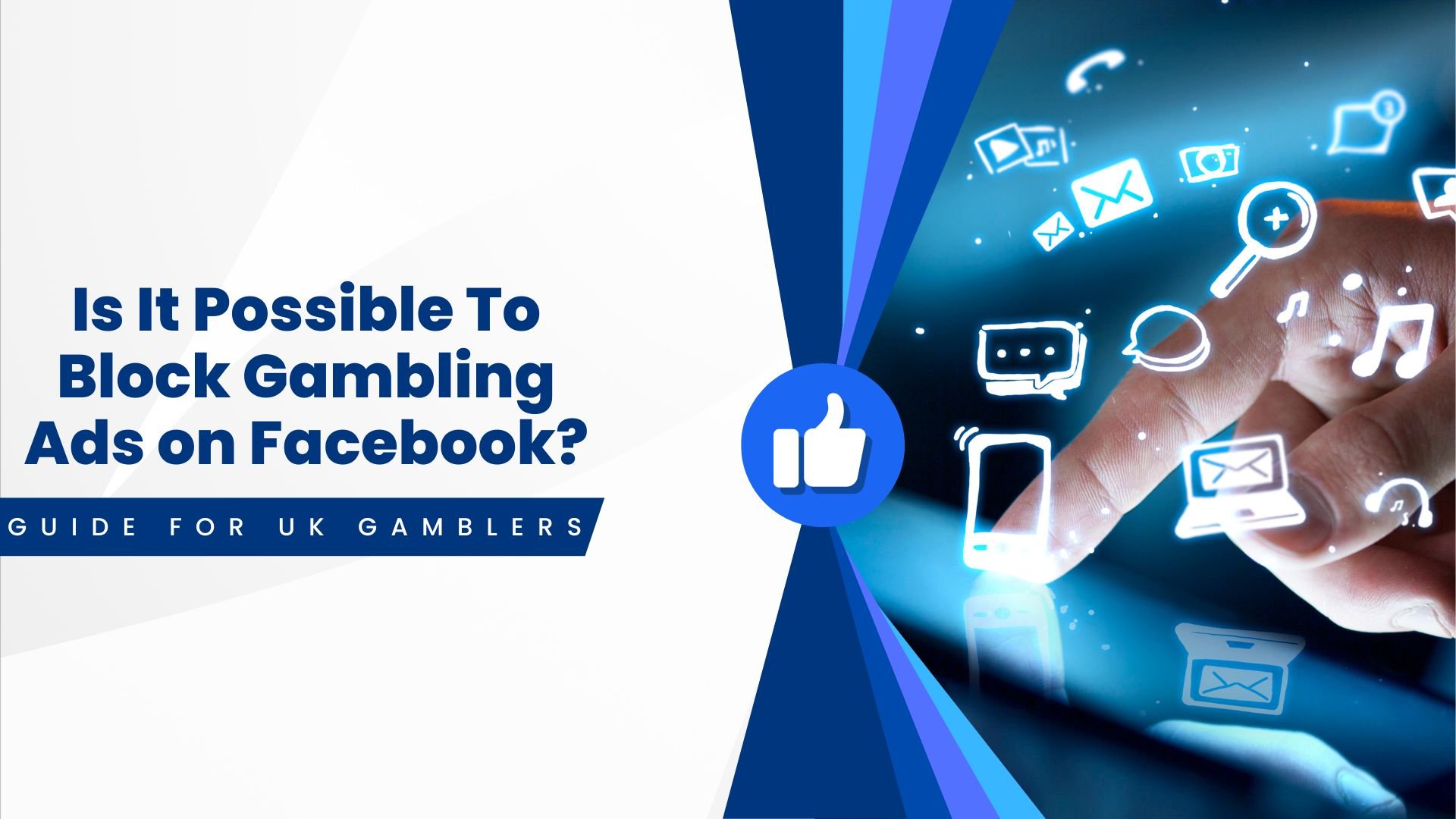Is It Possible To Block Gambling Ads on Facebook?

Table of Contents
Blocking gambling adverts, pop-ups, and promotional messages can reduce impressions, making it easier to protect minors and vulnerable players from gambling temptation. However, despite existing bans, regulations and procedures, there are gaps. It’s nearly impossible to block all gambling ads on Facebook, but players can take various steps to reduce impressions to a bare minimum.
GamStop – is an effective tool to block access to gambling sites. But it only works to an extent but won’t block advertisers from posting adverts on social media. Moreover, there are plenty of casinos not affected by GamStop like CasinoGap.org that have internal self-exclusion tools but still are accessible for players.
This review examines some of the tools players can use to block and limit gambling ads on Facebook.
Are Facebook Gambling Ads a Concern?
Facebook as well as Google is the largest social media platform with an estimated 2.7 billion users. This makes it a goldmine for advertisers and marketers, including gambling operators. According to stats, UK users spend an average of 2.3 hours per day on Facebook, and up to 65% of children and 69% of young adults will encounter impressions from gambling adverts.
Gambling operators use all forms of advertising, including celebrity endorsements and micro-influencers, making it virtually impossible to block Facebook ads completely. Players can still encounter promotional messages and images posted and shared by other users within their cycle. Unfortunately, impressions can lead vulnerable players and minors to gamble, exposing them to the potential harm of compulsive betting. As such, most parents and responsible gambling organizations are concerned about the influence of Facebook ads and impressions.
How Facebook Gambling Ads Work
Facebook algorithms and data analytics collect user patterns and metrics to optimize adverts in line with user interests and content search. Social media uses metrics from user activity on Facebook and other third-party websites, so if you visit an online shopping mall, you might start encountering sales offer ads from the same shopping mall. Likewise, if the user visits online casinos and websites with gambling-related content, it will reflect on Facebook ads. Players have various features they can use on Facebook to prevent such ads. However, other impressions, such as those from friends and influencers the user follows, require unfollowing and blocking friends.
How to Block Gambling Ads on Facebook
There’s no one way to block all gambling ads on Facebook. However, users can make specific changes to reduce impressions and reduce encounters with gambling-related content during their browsing sessions. The goal is to make it harder for algorithms to find any relevant data that can result in gambling-related impressions. Here are the top steps you should take:
Avoid Gambling Related Material
When browsing on Facebook, you should avoid giving likes, thumb-ups, emojis and comments to gambling-related content. Ensure you unfollow all pages, forums, groups and accounts with gambling-related topics and content. You can also block users who post gambling content frequently to avoid encountering their posts. Facebook uses your activity on the site and other third-party websites through cookies, so it’s vital to cease visiting gambling sites. It doesn’t matter if it’s a fun forum for jokes or a learning website with insights about the gambling industry.
Algorithms rely on keywords and specific features, so visiting any site with optimized gambling phrases will increase impressions from gambling-related ads. You can also clear Facebook cookies and other cookies placed on your computer to build a new profile.
Change Facebook Preferences
Facebook allows users to change ad preferences, and ad topics, add settings, categories it uses to reach you, data from third-party websites, interest categories, and other categories. Below is a closer look at how to change your settings to prevent ads related with gambling or gaming thematics:
- Add Preference – To access Ad Preference settings, click on Account, then Settings & Privacy, then Settings, then Ads. Using this route allows you to mark a ‘Hide Ads’ button beside the type of content you want Facebook to block from your impressions. The feature only restricts specific ads and doesn’t limit how many appearances you’ll get.
- Ad Topic – You can filter by Ad topics to block gambling topics from the impressions you get. Scroll down and click on remove to eliminate the topics you don’t want to receive impressions.
- Ad Settings – This feature has a list of options, including data about the user’s activity from partners. The setting allows users to unallow Facebook from providing personalized ads based on their activities on external sites.
- Categories Used to Reach User – User interest categories and other categories from the user’s friends list can influence the ads you receive. You can uncheck all gambling categories that appear to prevent impressions derived from such data.
Manually Remove Websites
Facebook users audience-based advertising, which involves showing ads to different audiences based on their activities with other commercial partners. If you have an account with gambling websites, you might receive gambling-related promotions and traffic from the operator, which builds your profile with more gambling metrics. Blocking audience-based adverts is the hardest but very effective to block all gambling ads on Facebook. The process involves manually removing each gambling website and cookies saved on your computer. You can also use game blockers to block access to such sites if you click on a link or promo while browsing other pages. The goal is to establish a clean profile with no gambling data for the Facebook algorithms.
Summary
Blocking all gambling ads on Facebook is virtually impossible because users have no control over their friend’s online activities. However, players committed to self-exclusion have many tools to keep them safe from the real threat of gambling. Schemes like GamStop can block access to all gambling websites licensed by the UK Gambling Commission. Software-based game blockers can also block non-UK websites and gambling-related material. Using a combination of tools and professional help can help you stay away from all forms of online gambling, despite running into occasional ads from Facebook impressions.




![Heleniums Care and Growing Strategies [A Beginner’s Guide]](https://www.thearches.co.uk/wp-content/uploads/How-To-Grow-Care-For-Heleniums.jpeg)


One Comment